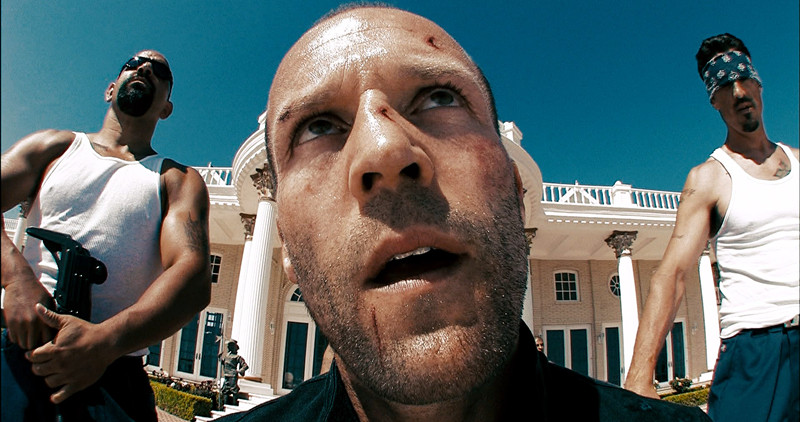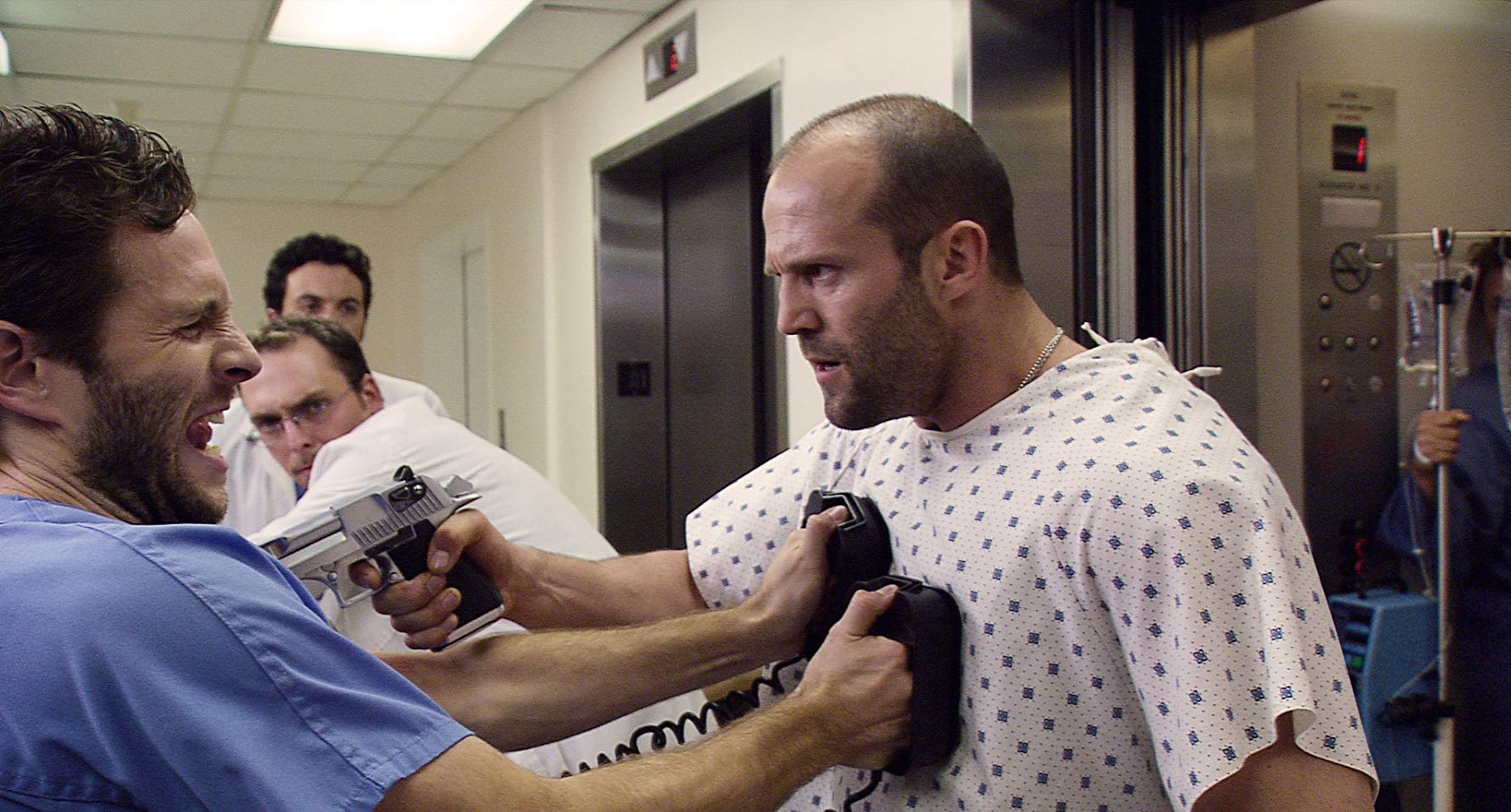The project that made me burnout
It’s 3 a.m. the night of August 10, 2013. An anxiety attack keeps me awake. Like a crazy person, I’m doing a code review of my own code in my head. All of a sudden, I realize a major problem in my application’s architecture. I scream and roll out of bed on top of my girlfriend to run like a madman to my PC. That day is going to be a beautiful sunny saturday. I’m going to work for 12 hours in a row. It’s stress and pressure that will keep me awake. How did I get here?
Genesis
To understand what is happening, let’s go back slightly.
A month and a half before, I arrive fresh at a brand new job. It is early July and the heat is stifling outside. But when I arrive inside the open space, the reception is icy and the faces are closed.
My manager calls me into a room and explains that my first assignment is a high-profile project. I’m in a small agency, but it’s for a huge client. The scope of the project? Crazy. The deadlines? Crazier.
Worse, I’ll have to work “independently” on it.
I don’t understand why, but I know I won’t like it.

I settle. They send me the specs, which are two paragraphs long for the moment. But it’s two paragraphs that come straight from hell.
I won’t go into details because we don’t care, but basically it’s a portal that is supposed to help users to eat and drink better via an interactive follow-up.
In the middle of the day, I decide to approach one of my new colleagues. He explains to me that it is “against the team’s advice” that this project was accepted with these absurd delays. He adds -smiling- that “now that a rockstar is in charge” we should have no problem.
You are not a rockstar
Before we continue, let’s talk about this for five minutes.
Developers -in particular- are frequently concerned by these issues of stress and burnout. For many different reasons. And the first one is cultural.
In your field the rockstar culture is omnipresent. This hero culture has been forced into your brain. This culture of the hacker who does everything by himself. You’re supposed to be a ninja, a guru, a jedi or some other bullshit like that. It’s so far in your brain that it creates crazy fears.
But the problem is that you’re not a rockstar.
And this reality pushes you to work like crazy to escape it. You try to reach goals that are only achievable by working impossible hours. After a while, it becomes normal to work so much.
And you don’t realize it anymore, but it pushes you into impossible states on a daily basis.

When you’re in there, you’re not aware of anything. You’re racing against deadlines and on the passenger side you have your impostor syndrome screaming at you. And let’s face it: it’s going to drive you crazy.
The best way to avoid burnout is to avoid entering a burnout situation.
And in order not to get into this situation, you have to know how to recognize it. Recognize when you are asked to do things that cannot be done. Recognize when you have taken the role of the hero. If you can recognize all this, you will be able to step back from it all.
If you can step back, you’ve already won. You can take action. And the most effective action is total transparency. A difficult, brutal, frontal discussion with all the other actors.
This is a time of open conflict and complicated to manage. Admitting that there is a problem is the best way to find solutions. Set boundaries. Define responsibilities. Re-scope the project. Divide the work. Push back deadlines. Ask for backup.
Say NO! Right now. You’re not a rock star who’s supposed to save everyone. You need to defuse this critical situation before it reaches the point of no return.

I can assure you that just by keeping this first tip in mind, you will avoid 80% of stressful situations in your job. Avoiding the situation is by far the most effective way to handle it.
But what happens when you can’t avoid it?
Descent into hell
In July 2013, I had absolutely no idea about any of this. The first week, the stress gradually slapped me in the face with more and more violence.
I was finally aware of the amount of work that was ahead of me. The following Monday I was already on an 8am / 10pm shift. At that point, I was sure of something.
The more time I spend on it, the faster it will go.
I started to cancel all my outings and spend less time with my girlfriend. In the heat of the summer, my life was about fucking yoghurt. And the more time passed, the more it was critical.
I could stop myself, despite the number of people who told me to stop.

After a month -a month is a long time in this state- I had to find a solution to go faster. And that’s when I started sloppy code. I thought it was efficient. But there was a price. That price was waking up at 3 a.m. to work 12 hours in a row because of an architecture problem.
That day made my entry into the world of burnout official. And it wasn’t going to get any better.
You are not a machine
You may be in the midst of stress / burnout right now. You didn’t see it coming and you find yourself in the same situation I was in back then. Since you are already in this situation, I unfortunately don’t have a miracle solution to get you out of it in a snap.
However, I have three things to tell you to mitigate what is happening to you.
1. The more time you spend on a project the less productive you are.
It’s not me who says it, it’s been proven by a lot of studies. By sacrificing all your time, you’re wasting time on your project. I know that it’s stress that pushes you to work all the time. It’s counterproductive.
The best way to find solutions quickly is to limit intense work hours and take frequent breaks.
It is known that the brain works on problem a lot unconsciously. If you refuse to work normal hours despite the pressure, your work will inevitably become more and more broken. The less it works, the more you stress. The more you stress, the less it works.
If you can avoid this particular vicious cycle, you will avoid burnout.
What will make you go crazy and sink into burnout is a hellish work rhythm. A work rhythm made for a machine. You are a human being and you can’t function with such a rhythm.
2. Communication and transparency are key.
If you are in this situation, it means that the famous deadline is already engraved in the rock. That’s what’s stressing you out.
The worst thing you can do is hide what’s going on from the people who work with you.
Make sure everyone – especially your direct reports and management – knows what is going on. Communicate extensively and publicly – global email, important meetings – the risks involved with this deadline.
Sometimes that’s enough to solve the problem. Sometimes it’s just reassuring that everyone knows. Because when the crash comes, no one will be able to ask you why and how you got there.
Don’t stay silent and alone with your problem. Silence only increases the pressure violently every second. Breaking this silence will relieve you.
3. Calmness and discipline are not options.
Imagine, you suddenly have a heart problem. You need an emergency surgery in the next few hours. But the surgeon in charge of saving your life is in total panic. He is as agitated as ever and he does not respect any standard of cleanliness to go faster.
Do you think he has a chance to do an acceptable job in time?

No. He’s sure to screw up. And you with him.
And for developers it’s the same thing. It’s precisely in moments of intense pressure that you have to keep your cool and the discipline of quality processes. Developers who can do this have a huge advantage.
I’ll be honest, it may not help you if your situation is very specific. And in that case, you need to look at things in a different way. You need to make some important decisions.
It is important to understand that this project is not that important.
Not that important
By the end of August 2013, I had succeeded.
A beta version of the product filled with hack was usable.
At the sacrifice of my mental and physical health, I had met deadlines that I should never have accepted. And clearly, I was at the end of my life.
Time to go see the client.
In the train between my town and Paris I do not exchange any word with my manager. We arrive finally in the enormous buildings of this big group.
Dressed like a penguin for the occasion I start the demo. I sweat like a pig every time I click somewhere. I know what’s behind it. End of the demo and no bugs.
I don’t care, I just want to get it over with.
And then the client will say something that will make me react despite my zombie state.
“It’s a good fit, now it’s a question of whether or not it will be used in our new strategy”

This new strategy would mean that my project would never be used. Everything I did was thrown away. All that effort, all those hours, all that stress, all those sacrifices … for nothing. That’s when I realized something that would relax me for my entire career.
Whatever you’re coding, it’s not that important
If you’re in the middle of a burnout, it’s important to have that perspective to get through it. It doesn’t matter what you do. If you are not aware of this, you can easily panic. And this panic will make you fall into a disastrous mental state.
Back in my hometown I was completely at the bottom of my burnout. Often when we imagine someone in burnout we imagine someone in anger. They run around, yell at everyone and communicate their stress. I was not like that at all. That’s not what burnout is.
A person in the midst of burnout is more like a soulless robot that does things on autopilot. No emotion, no matter what happens to you.
You have the choice
If you’re in the hole, you have to understand that you have a choice. You can either accept it and walk out of there a mess like I did. Or you can simply go elsewhere when it gets too much.
You tend to forget it, but you are the king of a strange market.
You are king and you decide if you want better or not. If a team or a company is working under a lot of pressure like amateurs, it’s not the same story everywhere.
The easiest way to get out of this kind of situation is to look elsewhere.
So you’re going to tell me it’s easy to say. Yes. It’s also easy to do. Careful, I’m going to push you a bit because I wish someone had pushed me around like that back then.
The situation you are in is your fault.
You have a choice. Go to a specialized site and find better. You deserve better.
This job shouldn’t have this much effect on your life. No job should. It’s just a job.
You are not your job. Your time is valuable. I think it’s time to ask yourself if it’s all worth it. Again what will get you out of this hole is to take a step back.
Never get so emotionally involved at work.
Epilogue
It took me almost a year to get out of all that. It was not worth it. You can avoid all this. I believe in you and I value you. Try to do the same.


I’m a high school teacher (USA, math and comp sci), and I experienced much of what you said in the first years of my career. The mythos of the “miracle teacher” is just as strong as the “coding guru,” and it drives young teachers to sacrifice their mental health again and again in the name of “saving their students.” It’s not surprising that many don’t make it past the first five years (which is unfortunate, because the first five years are the hardest).
Wow this is so good!
Right? Such a good read; Hopefully I avoid this by the time I join the workforce. In academics, sometimes they have me work on code for 14 hours straight due to time constraints. The more sleep cycles, the better the quality of my code gets.
I’m finding myself in pretty extreme burnout state now, so your advice is too late for me. It definitely would have been helpful though, if I were wise enough to recognize what was going and followed it. I am maybe 3 months into trying to recover, but the end is not in sight yet.
What movie are those scenes from? They’re hilariously appropriate!
Crank 2: High Voltage
The actor is Jason Statham and the movie is about as crazy as the pictures suggest.
Two years ago the owner of our small company announced he was working on a huge contract. He asked for our input, we told him at least twice as long on the deadline, triple the money he was planning to agree on and we needed two extra developers because we didn’t have part iif the expertise in house.
6 months later he signed the deal, the deadline was still on the original date, so half a year less instead of twice as long. He didnt increase the price, even though the scope had increased in those 6 months. And finally the needed extra people were never hired.
We were very transparant that it was going to be a shit show when he announced he signed that contract. And we kept him appraised every month of progress and what we estimated would be the deadline. So he is now passed at least once a month asking us why the deadline is not met. And we just refer him back to our past comments. And he ignores it. He must have put all his effort in calming the client, because we are now 1 year past the deadline, still have missing expertise (and one less developer), and the client is only now starting to complain to us about deadlines. We of course refer them all to the owner, who we told we’re not going to lie to the clients for you. We have our reputation to think of.
Job market is such that we could all have a job tomorrow, so those of us left decided to stick around just to see the scrap hit the fan. He’s going to have a ball when he’s sued, because we all have a file where we documented every warning we gave him even the ones before he signed the contract.